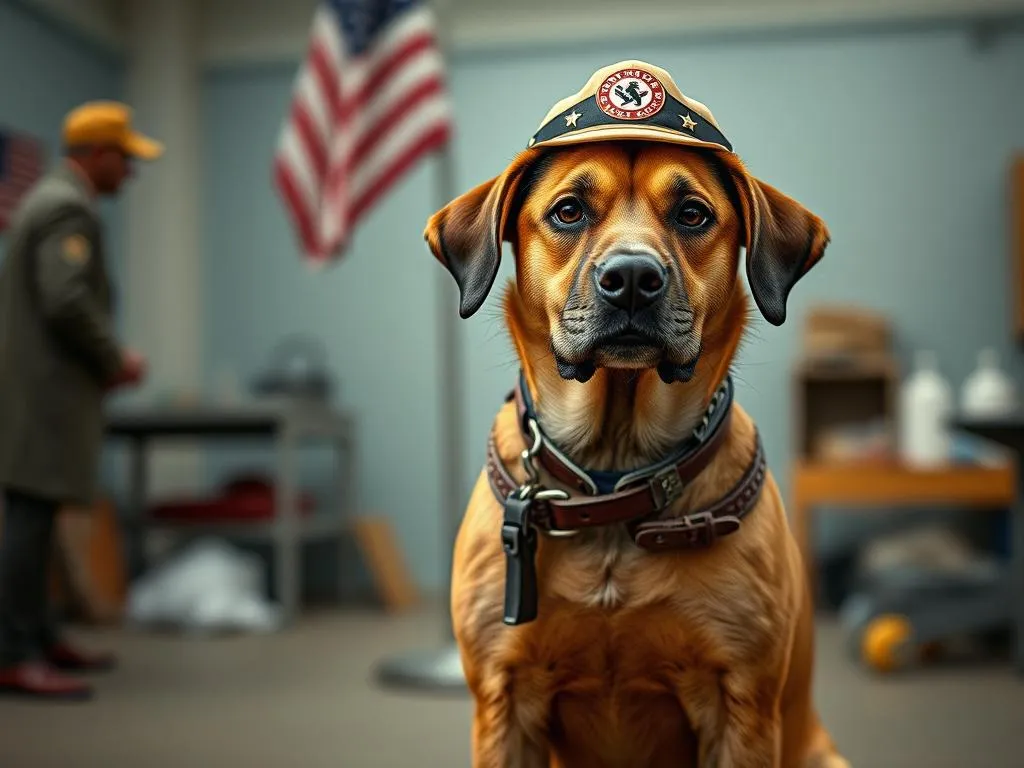
Dogs have shared a unique and profound bond with humans, serving not only as companions but also as indispensable helpers throughout history. The history of dog jobs is a fascinating exploration of how these loyal animals have adapted to meet the needs of human society across various cultures and eras.
The Early History of Dogs as Working Animals
Dogs in Ancient Civilizations
From the earliest days of civilization, dogs have played crucial roles in human settlements. In ancient Mesopotamia, evidence suggests that dogs were used for herding and hunting. These early dogs not only provided companionship but also assisted in securing food and protecting livestock.
In ancient Egypt, dogs were revered, often depicted in artwork and mythology. They were primarily used for hunting and guarding, showcasing their versatility even in those times. Breeds like the Basenji were utilized for hunting small game, while larger breeds were employed for guarding homes and properties. These roles laid the foundation for the diverse functions dogs would fulfill in human societies.
The Domestication of Dogs
The journey of dog domestication began approximately 15,000 years ago, although some theories suggest it could be even longer. The relationship between humans and dogs evolved from mutual benefit; early humans provided food and shelter, while dogs offered protection, companionship, and assistance in hunting.
Factors contributing to this partnership included the dogs’ ability to understand human commands and their keen instincts. This reciprocity fostered a bond that transformed dogs into “working partners,” setting the stage for the specialized roles they would embrace in the future.
Traditional Dog Jobs
Herding and Livestock Management
Herding dogs have long been essential in agriculture, with distinct breeds developed for this purpose. Breeds like the Border Collie, Australian Shepherd, and Corgi exhibit remarkable intelligence and agility, making them ideal for managing livestock.
Historically, herding dogs played a vital role in the development of agriculture. Their ability to guide and protect flocks allowed for more efficient farming practices, which were crucial for the sustenance of communities. Notable herding dogs, such as Lassie and Old Shep, have become cultural icons, further solidifying the importance of these breeds in society.
Hunting and Retrieval
Dogs have been used for hunting since ancient times, with specific breeds bred for particular tasks. Retrievers, such as the Labrador and Golden Retriever, are renowned for their ability to fetch game, while Spaniels excel in flushing out birds.
Hunting techniques have evolved with the assistance of dogs. The use of scent tracking and retrieval has significantly enhanced hunting efficiency, creating a symbiotic relationship between hunters and their canine companions. This role not only provided food but also fostered social bonds during hunting expeditions.
Guard and Protection Roles
Dogs have served as guardians of homes and properties for centuries. Their keen senses and loyalty make them exceptional protectors. Historically, breeds like the Rottweiler and Doberman Pinscher were developed for protection, showcasing their strength and intelligence.
In ancient civilizations, guard dogs were often employed to protect livestock from predators and intruders. Their presence offered peace of mind, establishing dogs as vital components of security in various cultures. The evolution of protection breeds continues today, with dogs trained for specific tasks within law enforcement and personal security.
Modern Dog Jobs
Service and Therapy Dogs
In contemporary society, the role of dogs has expanded significantly, particularly in the realm of service and therapy. Service dogs undergo rigorous training to assist individuals with disabilities, providing essential support in daily tasks. From guide dogs for the visually impaired to mobility assistance dogs, these canines enhance the quality of life for many.
Therapy dogs have also gained prominence, providing comfort and emotional support in settings such as hospitals, schools, and nursing homes. Their calming presence has a profound impact on mental health, offering solace to those in distress. Organizations like Canine Companions for Independence specialize in training service dogs, highlighting the importance of these roles in today’s world.
Search and Rescue Dogs
The capabilities of dogs extend to search and rescue operations, where they play a crucial role in locating missing persons and assisting in disaster situations. Breeds such as German Shepherds and Bloodhounds are often selected for their keen sense of smell and strong work ethic.
Training methods for search and rescue dogs involve scent discrimination, tracking, and obedience. Notable rescue missions, such as those conducted during natural disasters or missing person cases, showcase the invaluable contributions of these heroic canines. Their ability to navigate challenging environments and detect human scents has saved countless lives.
Working Dogs in Law Enforcement and Military
K9 units in police forces utilize dogs for various tasks, including detecting drugs, explosives, and apprehending suspects. Breeds like Belgian Malinois and German Shepherds are commonly employed due to their intelligence and strong drive.
In military operations, working dogs have proven essential, providing support in numerous capacities, including reconnaissance and attack. Famous working dogs, such as Cairo, the Belgian Malinois who participated in the Navy SEAL operation that killed Osama bin Laden, exemplify the critical roles dogs play in law enforcement and military settings.
The Cultural Significance of Dog Jobs
Dogs in Folklore and Mythology
Throughout history, dogs have held significant places in folklore and mythology across cultures. In Ancient Greek mythology, the three-headed dog Cerberus guarded the gates of the Underworld, symbolizing loyalty and protection. In various cultures, dogs are often portrayed as guardians or companions, reflecting their roles in human society.
The symbolism of dogs varies, representing loyalty, courage, and companionship. These depictions have influenced society’s perception of dog jobs, highlighting the deep-rooted relationship between humans and dogs.
The Evolution of Dog Roles in Society
As society has evolved, so too have perceptions of dogs. Once primarily viewed as utility animals, dogs are now increasingly recognized as beloved companions. Urbanization has shifted the roles of dogs, with more emphasis on companionship and emotional support rather than traditional working roles.
Current trends show a rising interest in dog-related professions, such as dog training, grooming, and pet therapy. This evolution reflects changing societal values regarding the importance of dogs in our lives, underscoring their roles as family members and companions.
Future of Dog Jobs
Emerging Roles for Dogs
The future of dog jobs is promising, with emerging roles that reflect changing societal needs. Emotional support animals are becoming commonplace, providing comfort in various settings. Additionally, the rise of social media has led to the phenomenon of dogs becoming influencers, showcasing their personalities and talents online.
Furthermore, innovative applications of dogs in tech-related fields are on the horizon. Concepts such as therapy robots involving dogs could revolutionize how we think about dog jobs, merging technology with the innate abilities of these animals.
Ethical Considerations
As the roles of dogs continue to expand, ethical considerations must be addressed. Balancing work and welfare is crucial for working dogs, ensuring they receive proper care and treatment. Standards and regulations for dog jobs are essential to protect their well-being.
Responsible ownership is paramount, as the increasing demand for dogs in various roles can lead to exploitation. Educating the public about the needs of working dogs and promoting humane treatment will be integral to the future of dog jobs.
Conclusion
The history of dog jobs is a testament to the deep bond between dogs and humans, showcasing their adaptability and loyalty. As we reflect on their evolving roles, it’s clear that dogs will continue to hold significant positions in our lives. From ancient guardians to modern service animals, their contributions enrich our society, paving the way for future partnerships. The journey continues, and the future of dogs in various job capacities holds endless possibilities.









